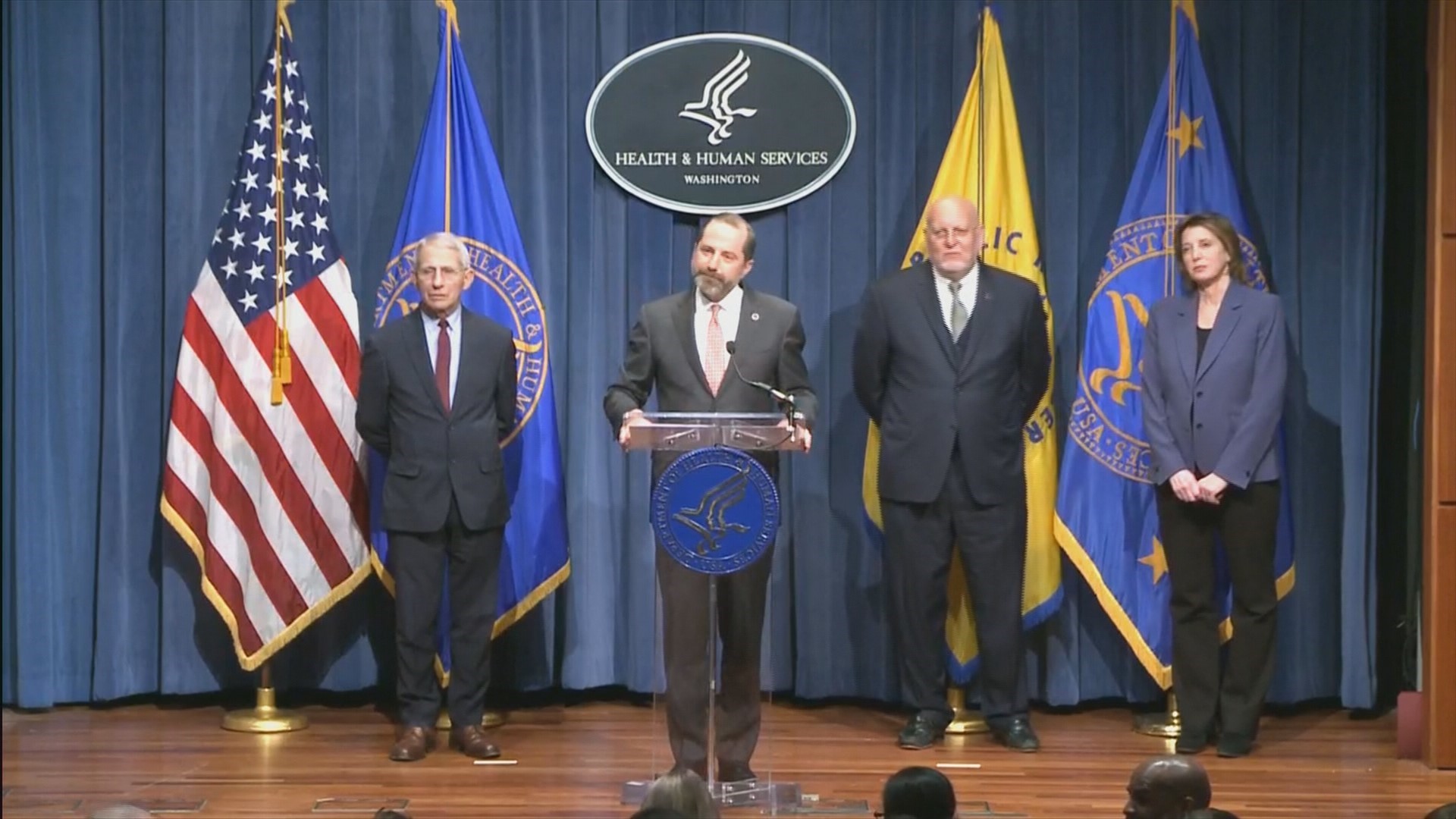China's death toll from a new viral disease that is causing mounting global concern has risen by 25 to at least 106. The total includes the first death in Beijing and 24 more in Hubei province, where the outbreak has been centered.
There were 1,771 new cases confirmed in China just on Monday, raising the total in that country to 4,515, according to the National Health Commission. Nearly 1,000 were in critical condition.
The United States, Japan, Mongolia, France and other governments are preparing to fly their citizens out of the locked-down city at the center of the outbreak. More than 45 cases have been confirmed outside of China.
Health and Human Services Secretary Alex Azar said the U.S. Centers for Disease Control and Prevention is seeking to send a team of experts to help China with its response to the outbreak. In a press conference Tuesday, Azar said he spoke with the Chinese minister of health on Monday to repeat an offer he made on Jan. 6 to send a CDC team.
Azar said he "hopes the Chinese government will take us up" on the offer.
Five cases of the virus have been reported in the United States with another 73 under investigation, according to the CDC. The CDC is urging people to avoid non-essential travel to the region at the center of the outbreak.
Health officials in Canada also confirmed the first presumptive positive case of the virus in British Columbia. Two cases had been previously reported in Ontario.
The New York Times reports Hong Kong will sharply cut the number of visitors from mainland China. Hong Kong has eight confirmed cases.
Several major fast-food chains and retailers, including KFC, Pizza Hut, Starbucks, McDonald's, Dairy Queen and IKEA have closed locations in and around Wuhan due to the outbreak, Business Insider reported.
Nany Messonnier, the CDC's director for the National Center for Immunization and Respiratory Diseases (NCIRD) announced the U.S. would expand screening of passengers to 20 airports. Screenings are currently set up at five airports.
Panic and pollution are driving a surging market for protective face masks and hand sanitizing liquid in Asia, where fear of the virus from China is straining supplies and helping make mask-wearing the new normal.
In some parts of Asia, wearing of surgical masks has become mandatory, for now. The U.S. has seen rising sales of surgical masks as well, but Azar says the masks are "unnecessary" as the risk to Americans is very low. Messonnier said there so far has been no evidence of human to human transmission of the virus in the United States.
While richer countries prepare to evacuate some citizens, hundreds of African students have little chance of a similar escape. China's push to expand its influence on the youthful African continent means there are 80,000 African students in China, with more than 4,000 said to be in Wuhan alone. None are expected to be confined to their campuses amid the virus outbreak as food risks running short. A grassroots African effort has begun to combat disinformation and keep them calm.


